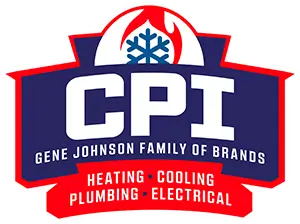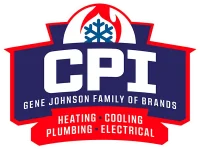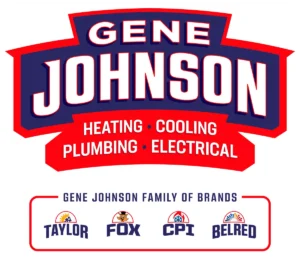What Size Heat Pump Do I Need?
Every homeowner seeking energy-efficient heating and cooling has inevitably asked themselves:
“What size heat pump do I need?”
Selecting the right size heat pump is a critical aspect of maintaining indoor comfort throughout the year while also optimizing energy use.
In this article, we’ll teach you everything you need to know about heat pump sizing. Hopefully, this helps you find the best solution for your home.
At CPI Plumbing and Heating, we’ve worked with dozens of Mount Vernon, WA residents in finding the right heating and cooling systems.
If you require professional assistance, don’t hesitate to contact us at (360) 822-9306 or leave us a message here.
Decoding the Basics: Sizing and Heat Pump
Before we delve deeper, it’s important to clarify what we mean by “size”. In the realm of heat pumps, size refers to the capacity of the unit to produce heat or cool air. This capacity is typically measured in ‘tons’ or British Thermal Units (BTUs).
Here, a ‘ton’ is an HVAC unit of measure, not to be confused with the weight of the heat pump. One ton of heat pump capacity is equivalent to about 12,000 BTUs per hour.
But what exactly does this mean?
What are BTUs?
BTU is a traditional unit of heat; it is defined as the amount of heat required to increase the temperature of one pound of water by one degree Fahrenheit. Therefore, when we say a heat pump has a capacity of 12,000 BTUs, we mean it can provide 12,000 units of heat (or remove that much heat for cooling) per hour.
Why is Heat Pump Size Important?
The importance of heat pump size cannot be overstated. The correct heat pump size is a cornerstone of achieving a comfortable, energy-efficient home environment. So, why does size matter so much?
Optimal Comfort
The right-sized heat pump will provide the correct amount of heating or cooling to maintain the desired indoor temperature, ensuring your home remains comfortable throughout the year, irrespective of the weather conditions outside.
Energy Efficiency
Heat pump size significantly impacts the unit’s energy efficiency. An oversized unit may short cycle, turning on and off frequently, which wastes energy and increases utility bills. Conversely, an undersized unit might have to work continuously to reach the set temperature, leading to excessive energy use.
Extended Equipment Life
A correctly sized heat pump will have a longer operational life. Both undersized and oversized units suffer from undue wear and tear, leading to more frequent breakdowns and potentially a shorter lifespan.
Improved Air Quality
Right-sized heat pumps also promote better indoor air quality. They maintain consistent humidity levels, preventing the growth of mold and mildew that thrive in overly humid conditions. Additionally, the consistent operation of the heat pump allows for regular air circulation and filtration.
Cost Savings
A heat pump that’s correctly sized for your home is more cost-effective in the long run. Not only does it consume less energy, leading to lower utility bills, but it also requires less frequent repairs and lasts longer, saving you money on maintenance and replacement costs.
Factors That Affect Heat Pump Sizing
The correct heat pump size depends on four key factors:
Home Size
The size of your home, specifically the total square footage, directly impacts the size of the heat pump you’ll need. Larger homes need larger pumps to effectively heat or cool the entire area.
Local Climate
The weather conditions in your region play a major role. In colder climates, you’ll need a more potent heat pump to combat freezing temperatures, while milder climates may require less power.
Insulation Quality
The insulation in your home can dramatically affect how much heating or cooling you need. Better insulation means less heat loss, which can allow for a smaller heat pump.
Comfort Preferences
Your individual comfort levels matter, too. Some people prefer a warmer indoor temperature in winter, while others are content with a cooler home. These preferences will affect the size of the heat pump you need.
Unraveling the Sizing Process
So, how do you determine the size of the heat pump you need? There are two common methods: Manual J calculations and consulting with HVAC professionals.
Manual J Calculations
Manual J calculation is a comprehensive method for calculating the heating and cooling loads of a home.
Developed by the Air Conditioning Contractors of America (ACCA), it takes into account a wide range of factors to determine the right size heat pump for your home.
Here’s a simplified breakdown of the process:
- Calculate the Square Footage: The first step in Manual J calculations is measuring the total square footage of your home. This includes all areas that need to be heated or cooled.
- Consider the Local Climate: Manual J calculations factor in local weather conditions. This includes typical summer highs, winter lows, and everything in between.
- Evaluate Home Design and Construction: The calculation also takes into account your home’s design and construction, including wall and attic insulation, window types, roof material, and more.
- Factor in Occupant Comfort Preferences: Lastly, your preferences for indoor temperature are included in the calculation.
Given the complexity of Manual J calculations and the detailed information required, it’s usually best to have these calculations done by a professional.
Consulting with HVAC Professionals
HVAC professionals have the training, experience, and expertise necessary to correctly size a heat pump for your home. They can guide you through the process, ensuring you select the optimal heat pump size for your specific needs. Here’s how they generally approach the process:
- Initial Consultation: The HVAC professional will first have an initial consultation with you to understand your heating and cooling needs, preferences, and budget.
- Home Assessment: Next, they’ll conduct a thorough inspection of your home, examining the square footage, insulation quality, window size and location, and other factors that affect heat gain or loss.
- Local Climate Analysis: They will also consider the local climate, taking into account the average high and low temperatures, humidity levels, and more.
- Manual J Calculation: Most HVAC professionals will use the Manual J calculation method or a similar load calculation method to determine the right heat pump size.
- Heat Pump Recommendation: Based on their findings, they will recommend a heat pump size that fits your specific needs and circumstances.
By using one or both of these methods, you can be confident that you’re selecting the right size heat pump for your home, ensuring optimal comfort and efficiency.
How to Find the Right Size Heat Pump
Now that we’ve explored the factors that influence heat pump size and the methods used to calculate it, you might be wondering about the basic guidelines.
While every home is unique and there’s no substitute for a professional assessment, the following table provides a simple point of reference.
| Home Size (sq. ft.) | Heat Pump Size (Tons) | Heat Pump Size (BTUs) |
| 500 sq. ft. | 1 ton | 12,000 BTUs |
| 1,000 sq. ft. | 2 tons | 24,000 BTUs |
| 1,500 sq. ft. | 3 tons | 36,000 BTUs |
| 2,000 sq. ft. | 4 tons | 48,000 BTUs |
| 2,500 sq. ft. | 5 tons | 60,000 BTUs |
| 3,000 sq. ft. | 6 tons | 72,000 BTUs |
Note: This table is based on the rule of thumb that a home typically needs about 20 BTUs per square foot, but remember, it’s a very rough estimate.
For a more accurate assessment, please consider consulting with an HVAC professional, like CPI Plumbing and Heating.
Contact us today at (360) 822-9306—we’d be more than happy to lend a hand!
Signs of Improperly Sized Heat Pumps
It’s important to be aware of the signs that indicate an improperly sized heat pump. Here are some common indicators to look out for:
Inadequate Heating or Cooling
If your heat pump struggles to reach and maintain the desired temperature, it may be undersized. Inadequate heating or cooling can result in discomfort and inconsistent indoor temperatures.
Short Cycling
If your heat pump frequently turns on and off in short cycles, it may be oversized. Short cycling can lead to energy waste, increased wear and tear on the system, and reduced efficiency.
High Energy Bills
An improperly sized heat pump can cause your energy bills to skyrocket. If your bills are consistently higher than expected, it may be an indication that your heat pump is not operating at its optimal size.
Excessive Wear and Tear
An undersized heat pump that constantly runs to meet the heating or cooling demand can experience premature wear and tear. This can result in more frequent breakdowns and the need for repairs.
Uneven Temperature Distribution
If certain areas of your home consistently feel too warm or too cold, it could be a sign of an improperly sized heat pump. Properly sized heat pumps should provide balanced heating and cooling throughout your home.
If you notice any of these signs, it’s essential to have your heat pump professionally evaluated.
An HVAC technician from CPI Plumbing and Heating can assess your system, identify any sizing issues, and recommend the appropriate solutions for optimal performance and efficiency.
So, What Size Heat Pump Do You Need?
If you find yourself grappling with this question, don’t settle for unreliable contractors or a subpar solution. Take control of your indoor temperatures, no matter what the weather is outside.
At CPI Plumbing and Heating, we offer affordable and reliable services that cater to all your heating and cooling needs.
Our range of professional services includes heat pump installation and repair, routine maintenance, and even assistance in upgrading from an old gas furnace to a new, efficient heat pump.
We are committed to providing you with the best heating and cooling solutions, tailored to your unique needs.
CPI Plumbing & Heating: Your One-Stop Solution
Get in touch with our team of experts at (360) 822-9306 anytime, 24/7, for emergency assistance, urgent inquiries, or to schedule a consultation. Let CPI Plumbing, Heating & Cooling help you find the perfect heat pump solution for your home today.


